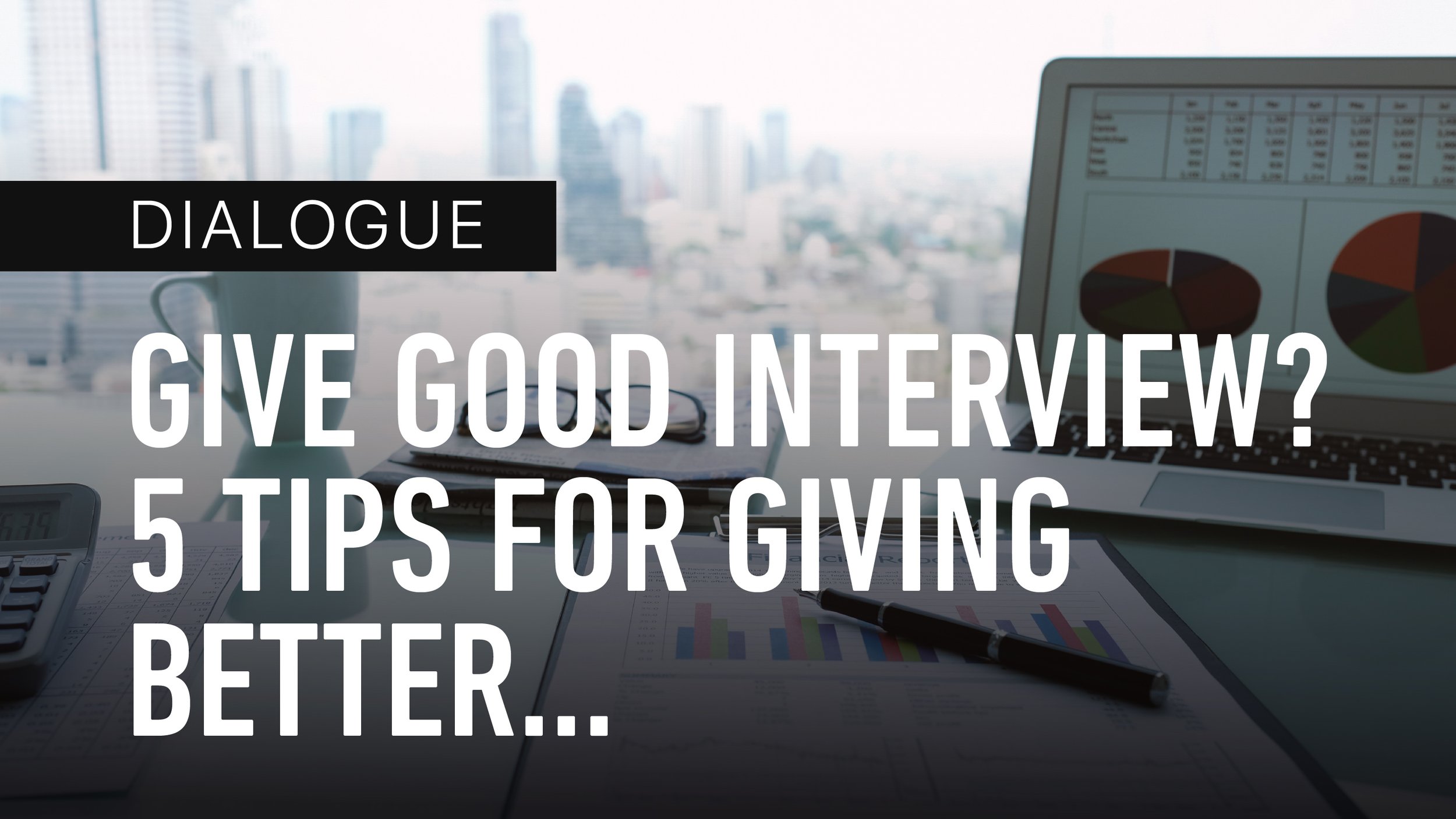by Linda Patiño, Managing Director at Dialogue
After being deputy editor in Technology at one of the largest media outlets in Colombia and collaborating with many other outlets in the region, sometimes I wonder what makes an interview good? It is no secret that interviewing is an art that is widely studied, in which preparation is only 50% of its success. However, what can a spokesperson do to give good interview?
Precisely because it is a two-way conversation (even multidirectional if we are talking about a live format where users of social networks can intervene), it makes sense that a good interview also depends on the interlocutor. In my media experience as a journalist, I’ve often encountered monotonous, monosyllabic and dry voices that made me suffer through the interview process.
1. Monologues are out! Keep in mind that unless we are Plato in front of a group of philosophers, monologues are usually not interesting. It is common for a spokesperson to be rushed at 'delivering' all of the key messages on the first question. But the more concrete and consistent our messages can be, the more questions we can answer and involve the journalist in what we have to say. Don’t pre-deliver. Trust the process.
2. Listen to the cues. The art of being a good spokesperson is not in firing messages at the journalist as if it were a graduation speech. The art lives in understanding when the key message has value for the conversation, for the question being posed and for the audience that would hear it. An interview is an opportunity to show value and contribute to a discussion, not a meeting to force the media outlet or you to become a corporate 'billboard'.
3. Don’t be basic. A third key factor is detecting when your speech is too scripted or 'commonplace' and not allowing for your originality. This scripted approach not only turns off the journalist, because they have 20 other spokespeople who could say the same (and probably better), but it limits the opportunity to explore new angles of a particular topic to make a difference. Being a good spokesperson is identifying touches of your personality and expertise that makes the conversation a unique experience.
4. Make training your own. Practicing is important, rehearsing, spending time thinking about your thoughts and knowing how to express them more clearly will always be an advantage over those who do not take it seriously. However, being married to a single model, a type of 'briefing book' or a single message stunts your ability to enrich yourself with each conversation. Here, PR agencies and media training coaches have much room to innovate, especially in digital times.
5. Be authentic and humble. Talking loudly, aggressively or being cute are not essential characteristics of a good spokesperson. The ability to offer a point of view that benefits a corporation should not include a manipulative strategy. Respect for the journalist, his or her work and what they represent is part of the ethical dimension that companies should have.

